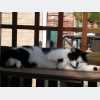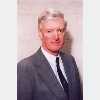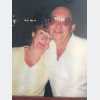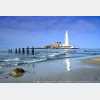| Profile | Posted by | Options | Post Date |

|
Grabagran
|
Report
|
11 Nov 2009 23:55 |
|
Len. Have just read this thread, and found it fascinating to read of just one very brave mans story.
But for thousands of people like you, we wouldn't have what we have today.
|

|
Len of the Chilterns
|
Report
|
11 Nov 2009 23:46 |
|
I am truly surprised that so many have commented on my few words. I have to say that I tried to play down my account. Probably my worst memory is bringing down a M110 and later finding that it was unarmed as were the two occupants.
My dad was in WW1 and served 4 years in Flander's trenches and was extremely lucky to have survived. He told me that he owed his continued life to steadily refusing a commission as he was aware that officers were going down like ninepins. Like me, he swapped regiments,starting off prewar, in 1912 as a Militia Man in the Bucks & Oxon Rifles, enlisting in 1914 in The Royal Artillery then changing at some unknown point to the Royal Engineers. His were amongst "the burnt records" so I shall never know the details. He never talked about his experience although my mother told me a few hair-raising things such as his propensity to dive for cover at any unusual loud noise until well after the war.
Funnily enough, Dad talked to me about his experiences but only after I "qualified" by becoming one of "them". I now know that old combatants only talk about war to their peers - the only people who know what war is all about and can empathise.
Some post-war folk are queasy about Dresden and other German cities But I for one am glad that Nazi Germany was devastated. They sowed the wind and reaped the whirlwind.
My two brothers have now passed on. They both achieved the age of 83, and died peacefully in 1995 and 2002 respectively. I am aiming a bit higher and reckon on making 93.
|

|
Carole
|
Report
|
11 Nov 2009 23:24 |
|
Len I don't know what to say. .......... Enjoyed seems the wrong word to describe how I feel reading your recollections of WW2.
My mums brother was a gunner and was in a Japanesse POW camp, he spent his 21st birthday there. Working in copper mines. When he was in his last moments, dying of cancer he was so medicated, it took him back to the war. He was trying to sit up and "shoot the enemy" even his Dr cried. I remember him telling me how some of the men would break their own knee caps so they would be taken into the hospital rather than suffer the work in the mines. There was a Canadian Dr there, my uncle never forgot him.
|

|
Jean (Monmouth)
|
Report
|
11 Nov 2009 19:42 |
|
Thanks Len. The young should not be sheltered from these facts or they will never understand the horrors of war, or the need for it. MyDad fought in both wars and couldnt wait to rejoin in 1939, he missed the comradeship of the Forces, and the shared memories they couldnt bring themselves to tell their families.
|

|
Karen in the desert
|
Report
|
11 Nov 2009 18:18 |
|
nudging....
...because today, of all days, Len's story deserves to be read.
K
|

|
GinaS
|
Report
|
11 Nov 2009 16:14 |
|
Thanks Len for sharing - my dad died in Burma. I made a trip with the British Legion to visit the War Memorial in Rangoon. There was a soldier with us on the trip, who travelled to pay his respects to his lost comrades.
It was a very emotional trip for us all.
My late mum always preferred Anne Shelton.
All the best Len,
Regards, Gina
|

|
BrianW
|
Report
|
11 Nov 2009 14:08 |
|
Talking of Tail End Charlies, my cousin was killed about 16 months before I was born, flying as TEC in a Lancaster which blew up over Belgium after being attacked by a night fighter. He was 24 and a Sergeant Air Gunner.
I wish he'd survived to tell his story.
And on HAA, I recently found on Google Earth the distinctive outline of a eight gun battery just to the north west of Romford, by the A12/Whalebone Lane junction. It was apparently one of the outlying defences for Hornchurch aireodrome.
I wish I'd known it was there when I was a youngster in Romford and could have explored it.
|

|
Linda
|
Report
|
11 Nov 2009 12:07 |
|
Hello Len,
We have not spoken before, a big thank you for telling us how it was, my dad was in the fleet air arm but never spoke about it while he was alive.
I've got a seven year old grand son whos just started a new school and came and told me he was learning all about ww2.
lynn
|

|
Mauatthecoast
|
Report
|
11 Nov 2009 11:48 |
|
Hello Len
Like others I'd like to thank you for sharing your memories,which, for young folk now, is a 'living' history lesson.
So glad your brothers also survived the war. My Father was a dispatch rider for the medical corps, in the Middle East,but he always kept the horrors of it all from us when we were young.
We all certainly have a lot to be thankful for and everyone should appreciate the bravery shown to give us our freedom.
Thanks again
Mau xx
|

|
LindainBerkshire1736004
|
Report
|
11 Nov 2009 11:25 |
|
Thank you for sharing your experiences with us Len
As somebody else asked have you written any down for your descendants to read? I am trying to get my FIL motivated to do this but he never finds enough time to do it !!! He is 86 and we have taken him back to the landing beaches in Normandy about 8 or 9 times the last being in October this year.
Linda :o) X
|

|
Karen in the desert
|
Report
|
11 Nov 2009 09:56 |
|
Hi Len,
I always enjoy reading your stories, and this one is no exception.
My Dad was just a few years too young to be called-up, though being a Londoner, he had plenty of stories to tell of air-raids etc. I never got tired of listening to him.
I have 2 uncles now in their 90's, both Japanese PoWs, and won't talk about it. Much as I'd like to know their story, I have to respect that it's just too painful for them.
I am pleased and grateful that you are able to put your story on here for us to read, Len, so that we may appreciate what you and others went through to help this country gain the freedom we enjoy.
Where would we be wthout people like you Len,
K x
|

|
Carol in Rochester, New York
|
Report
|
11 Nov 2009 02:27 |
|
Hello Len, I don,t come on here much anymore but pleased that I did tonight. Reading your memoirs was, indeed, a very humbling experience and I should like to add my thanks to the millions who owe their freedom to people like yourself and also, to those who gave the ultimate sacrifice.
|

|
Stevie
|
Report
|
11 Nov 2009 01:28 |
|
Thanks for sharing your memories Len.
Most of us cannot begin to fathom, the life that you & all of the other lads in forces endured during the war.
But you have our greatest respect & thanks for what you all have done. Not just for this country, but also for the freedom of the world.
Your stories should be put to paper, so they can be preserved for the historical importance that they are.
Steve.
|

|
Elizabethofseasons
|
Report
|
11 Nov 2009 00:23 |
|
Dear Len of the Chilterns
Hello
We haven't spoken before but I aways read your posts.
You have described WW11 with such detail.
I always wonder how people got through the war, those serving and those
at home.
The people from this time period were a very special kind of human being.
Take care of yourself.
Best wishes
xx
|

|
Len of the Chilterns
|
Report
|
11 Nov 2009 00:00 |
|
I was called up for military service in 1942, shortly after my 18th birthday. Many of my school friends likewise went into the forces.
I didn't particularly want to go having only just started work and wanting to get on with my career. Having asked for the navy, naturally I was directed to an infantry regiment and during training found it quite an exciting (boring at times) life. I enjoyed unarmed-combat sessions (makes judo seem very ladylike) and the stripping and re-assembly of various weapons. It was good fun on the firing ranges too where we used all sorts of small arms, mortars and grenades. Square-bashing was a bit of a bore but had its uses. My abiding memory of the initial few months of training is of assault courses. I and many others never completed the earlier ones but were collected up at various distances along the 5-mile course and transported back to our billets in the back of a Bedford 3-tonner (the first motor vehicle I learned to drive). I cannot recall any other time in my life being so exhausted and, on the first occasion, slept on my bunk with my boots on. On my first leave I checked to see how much weight I had lost and found it had increased by about 10lb
The first deaths I witnessed during the war were not due to enemy action but accident. The first was during an exercise. A dispatch rider cut in front of our truck, came off his motor bike and had his head run over. The next was during an air-raid over southern England. On recoil, the breech-block broke off our gun and knocked a chunk out of the concrete emplacement. No 5, the rammer, was standing in its path. There were plenty of deaths from enemy action later and what I mostly remember is the appalling smell that arises from freshly shredded bodies.
I suppose it was fortunate for me that at the time they were short of anti-aircraft gunners so had the opportunity to transfer to an artillery regiment. And found myself part of team manning a 3.7” heavy anti-aircraft gun and twin Lewis machine guns the latter later to be replaced by Bren guns. It took 10 men to man a 3.7” AA gun, which weighed about 10 tons, and the Lewis all of which in an emplacement surrounded by thick concrete walls .There were 8 gun emplacements on the site. When all were in action, the noise was indescribable and we had no ear protectors in those days. Each gun could put up 6 shells a minute and we could keep going for about 15 or 20 minutes. A shell and case weighed about 25k or 56lb so the loaders, rammer and the men who shifted them from the magazine to the guns needed to be robust. The 3.7” referred to the bore of the gun barrel which, as far as I remember was 20ft long and had to be cleaned after an action. Sometimes we were strafed by low-flying enemy aircraft which was when our machine guns came in handy.
I said “fortunate” to be transferred to the HAA as several of my friends, some of them from schooldays, who were in other branches of the services, were sent overseas and died there. My particular pal, Tony (we were at school together) was a tail-gunner in a Lancaster. He survived the war but as an alcoholic - and subsequently died of cirrhosis of the liver. When he was called up he was a happy-go-lucky tee-totaller.
My two brothers also survived the war. Both older than me; one an officer in the navy and the other a medic in the air force. The former was on a cruiser and helped sink the French navy at Dakar whilst the other told me that sometimes they removed casualties from returning bombers with a hose, particularly “tail-end Charlies”.
Incidently. we thought Vera Lynn had a very good agent but she was a bit of a wailer. Now Anne Shelton , there was a singer.
|

